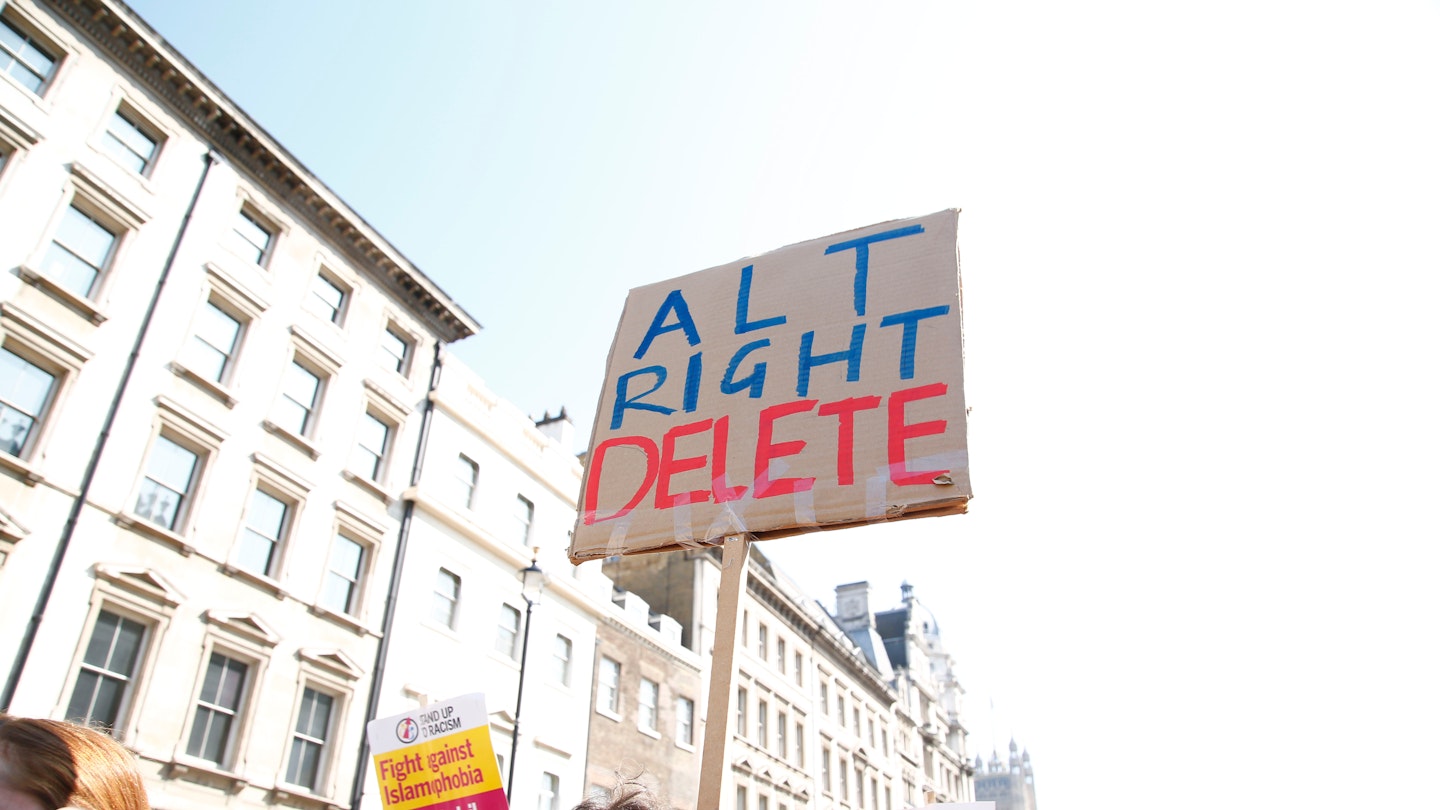It’s a classIc hate story: immigrants arrive and the far-right get furious. So far, sadly, so normal. But a new bully on the block has emerged – a racist group called Generation Identity, who are harder to spot because they hide under a veneer of respectability.
Generation Identity (GI) target young, university-educated types with their anti-Islamic rhetoric and conspiracy theories that claim white people are becoming a minority in Europe. Unlike the skinheads of the past, GI are image- conscious and make an effort to look presentable. Because of their façade, the media has spent the past few weeks profiling them as well-dressed hipsters, focusing on their skinny jeans and New Balance trainers.
But painting them as ‘cool’ plays directly into their hands. Instead of profiling them as fashion-savvy hipsters, we must warn people against the group trying to put a stylish face on extreme ideologies. Since launching in Britain last year, they have quickly become the most active far-right group in the UK. I tracked down the leader of Generation Identity Ireland, a woman in her thirties called Damhnait McKenna, to fact-check some of the group’s most dangerous vitriol.
When I ask what she thinks of the rise in hate crime in the UK, she replies, ‘That’s a loaded question... There is no rise in hate crime.’ But Simon Murdoch from Hope Not Hate, an advocacy group fighting racism, says their research shows worrying levels of anti-Muslim sentiment. ‘Hate crimes have spiked during and immediately after the Brexit vote, after terror attacks last year, and remain stubbornly high. It has passed beyond the far-right fringes and into mainstream opinion,’ he says.
Damhnait goes on to say that she believes we are facing ‘a demographic crisis across Europe where our peoples are becoming a minority in their own countries’. But Simon explains the theory is based on predictions that experts have repeatedly called unreliable. He says this only highlights their racism even more ‘by assuming that non-white migrants intrinsically pose a threat to GI’s ethnic and cultural heritage’.
But as much as we discredit the group, worryingly, their message appears to be galvanising some young people. Simon explains they recruit from the middle classes which they believe will give the group ‘an air of respectability’. Damhnait says GI currently have a backlog of applications, and it’s a youth movement, with most activists in their mid-twenties. ‘We weed out the “old right” ideologically based applicants. We prefer those who are well-read and studious in character,’ she says.
Social media plays a big part in their recruitment process. They influence people who might not have been reached by radical groups in the past. Now, tools like Facebook and Twitter mean they have total control over the line they push out. If we leave them to it, this line goes unchallenged. They also recruit British members and send them to military-style training camps abroad – methods shared by the banned neo-Nazi terrorist group National Action. But, unlike National Action, GI’s euphemistic language makes it harder to see them for what they are – white supremacists.
Instead of talking about the colour of people’s skin, they dress their racism up as ‘cultural differences’. But the tropes are similar to those used by fascists of the past – trying to create a ‘pure’ race and whipping up fear. They say they’re preserving British culture, but we know all too well where language like this can lead. As well as the hate crimes on our streets, there was the murder of Jo Cox, the MP who was brutally killed by the far-right terrorist Thomas Mair, for Britain’s supposed ‘freedom’.
Speaking to Grazia, Jo’s sister Kim Leadbeater says, ‘Jo was murdered by a man who was obsessed with far-right, fascist ideology. We know the indescribable hurt that can be caused by individuals with extremist views and I wouldn’t wish any other family to have to go through what we have.’ While there is nothing we can do to take away the horror of what happened to Jo, Kim says we can decide how to respond to it. ‘My energy now goes into doing what I can to create strong communities, where people have a sense of belonging, and where hatred and extremism can no longer fester.’
The reporting of groups like GI has been criticised in the past few weeks for giving them a greater platform. But while we must be careful not to glamorise them, it is vital that their extremist views don’t go unchallenged. ‘We need to shine a light on the toxic views and beliefs underlying this group’s attempt at making a slick image for itself,’ says Simon.
Kim believes we need to hold more events to bring communities together – like the Great Get Together, which she set up in Jo’s memory last year. ‘It’s our way of showing that extremism of any nature will never win if we come together to reject it,’ she adds. Visit greatgettogether.org
